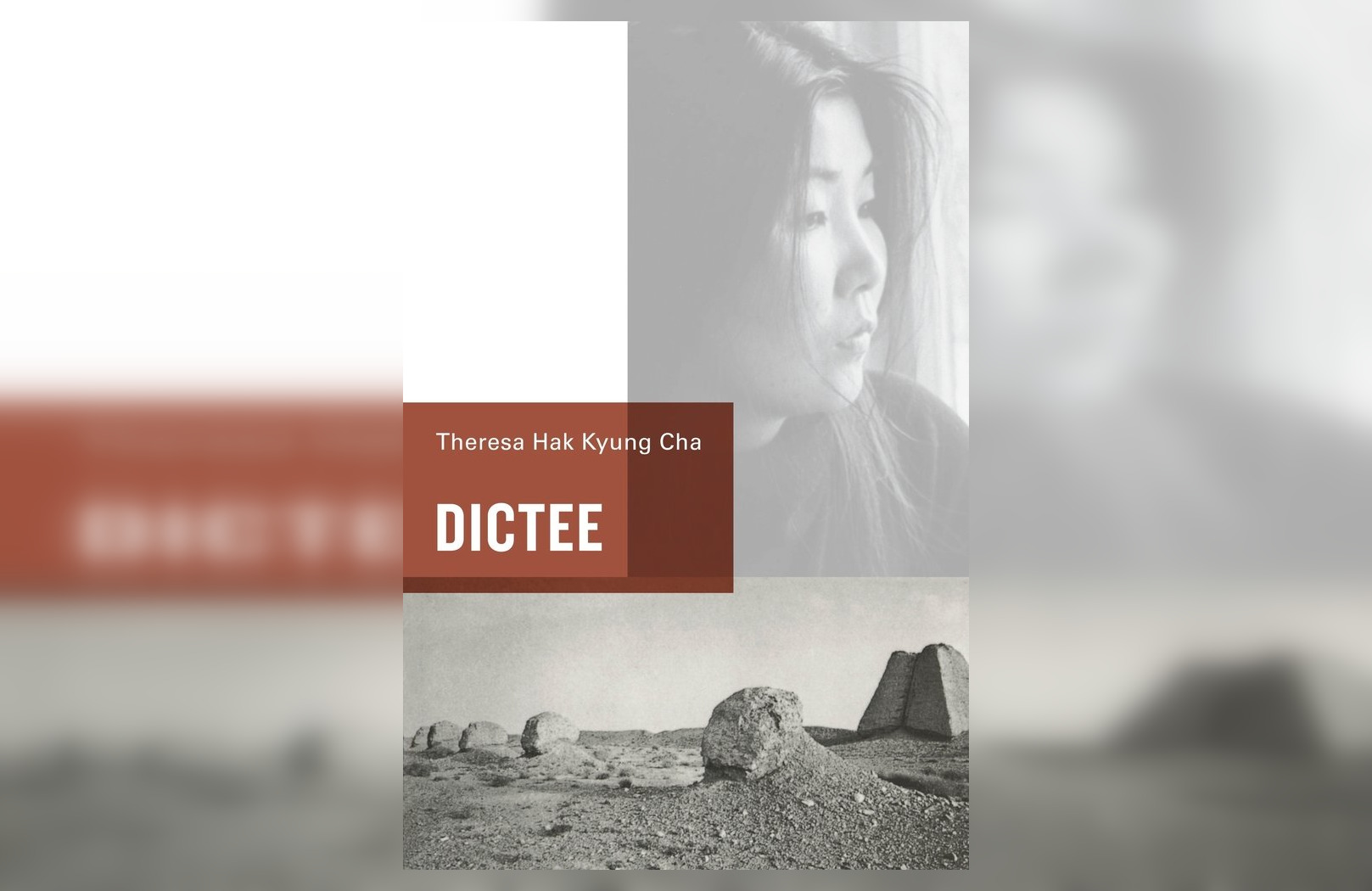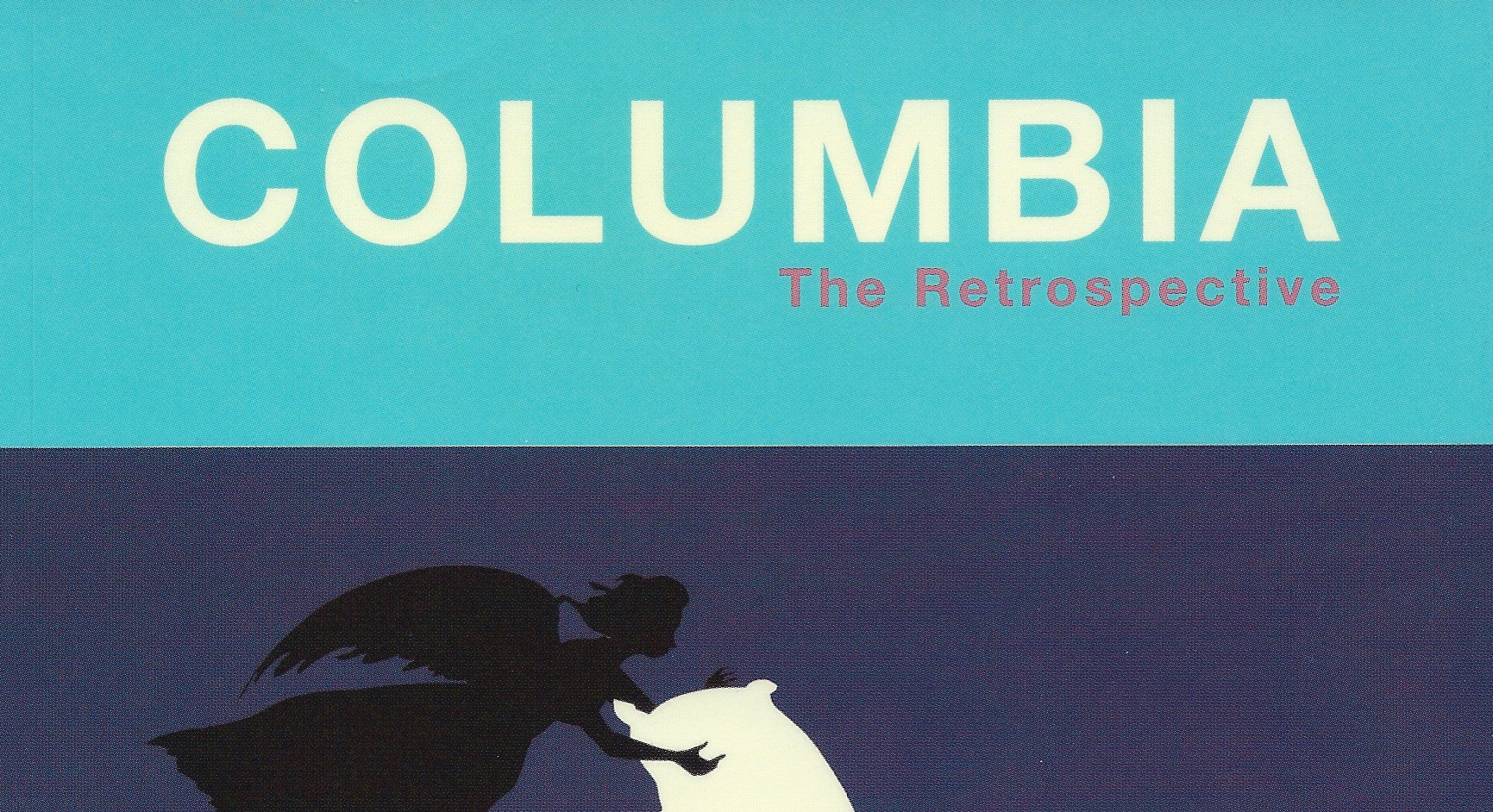Canon Fodder is an ongoing series of essays where writers talk about the books they’ve held close relationships with in their lives and why those books deserve a second read by a broader literary audience. The first essay in the series looked at the young adult novel, Catherine, Called Birdy. The second discussed James Herlihy’s Midnight Cowboy.
*
In college, while floundering through efforts to cover who I was with who I aspired to become, I came across an unmistakably Korean-sounding name in the description of a course I ended up not taking and decided to delve into it. The name I came across was Theresa Hak Kyung Cha. Cha had written one book (if I may exclude the collection of essays on cinematography she edited) before she was brutally murdered in New York. That book is Dictée, the one I frequently revisit as I feel pressured to be understood.
Understandability is often a key word in discussions surrounding Dictée. Upon my encounter with the book, I was discouraged with how little information about the book and its author was out there. I first tried American search engines, where the results were disappointingly inadequate. Then, in vain hopes, I tried Korean websites, which showed even fewer entries about Dictée. Only much later did I realize I had to look to academic sources, mainly databases of scholarly journals, to gain any useful knowledge about the work. I remember I was later confused that the receptions I finally found were emphasizing how difficult the book is to grasp, because as a person who speaks English as Second Language, I did not find Dictée any more impenetrable than other texts in English. If anything, I thought it was more understandable than other English text I had read so far, because I could follow the short sentences and recognize many of the images. Especially in the beginning, the language of language learning spoke to me––the way language learner books speak to their readers, with their typically assertive, authoritative voice. I remember reading the first few pages of Dictée and thought the language of language learning was perhaps my first language, because every time I changed school, the officials tried putting me into English as Second Language classes, not believing that I was capable of attending regular classes.
Dictée is indeed not a grade school textbook, although it’s formally faithful to its title. Beginning with a dictée (French for dictation) exercise, the book clearly warns the readers that what’s ahead is going to be challenging, obscure, or not to be understood at all, as the early stage of language acquisition feels. The dictée exercise opens the book with a narrative of a student coming from A Far, on the first day of school. At the dinner table, she tells her family,“There is someone. From a far.” Is the speaker othering herself as the third person “someone,” due to her lack of fluency in English? Or is there another person came from a far? Questions like these, prompted by unconventional grammar and structure, enrich the non-linear, collaged and mosaicked construction of Dictée, allowing its readers an aleatoric reading experience. Speaking metaphorically, the reader gets to throw the die that is Dictée, and centralize their reading on the result of that throw.
An ethnic, cultural, and linguistic minority’s experience is not considered easily relatable because it is not the mainstream. To resolve this issue, an unequivocal direction tends to be desired to enhance relatability. Naturally, writer would choose a method that is clear and direct in order to get the point across, especially when the subject matter is expected to be less accepted. The elucidation is also demanded by the readers––therefore, the reception of Dictée has often been either giving up on understanding the narrative to fully indulge in aesthetics or analyzing history and the author’s biographical facts to make sense of the structural ambiguity. Such mutual exclusivity in readings of Dictée reminds me of native speakers’—specifically the first-world English speakers’—perception of language learners, where the learner is either dismissed as inarticulate, whose thoughts, blocked by the language barrier, are unimportant to hear, or fetishized as a quiet mystic. To speak of my own experience, I’ve never liked to be belittled for my less-than-fluent English or automatically considered as a sage from Asia. What I wanted was neither my exuding Koreanness nor my lack of Americanness to affect what I said.
*
What are we talking about when we say we understand a book, a work of art, a person? Though the word “understand” insinuates the subject who performs “understanding” stands under the object being understood, a certain highhandedness often lingers when someone claims they understand anything. Thus, “understandable” in practice means different things: acceptable, permissive, relatable. In attempts to understand Dictée, or any books or works of art for that matter, people tend to pose higher than what they try to understand. Understandability then needs to be granted to the object, by the mainstream, the authority, the canon. For this, Dictée is not our grade school textbook.
While attending schools in the English-speaking parts of America, as “someone from a far,” I have always contemplated the possibility of whether I would be understood in conversation. Would people understand my English, with my accent and Koreanisms, choppy sentences and misused idioms? Like the speaker in “Diseuse,” my utterance in English requires a long internal dialogue. For me, reading English used to be empty gaze at uncanny words, when I could mimic the sounds without knowing the meaning. Do Dictée’s unexplained elements, such as French words and images without captions, provide similar effect for monolingual Anglophone readers?
College was where I had striven to be someone I aspired to be. Upon admission to an art school in the Midwest as a nineteen-year-old, one who spent her adolescence in a rural, unwelcoming town in Canada, I thought I needed to become an Anglophone, a euro-ethnic American citizen, or at least act like one. Any flaws in my English writing could have been used against my pseudo-American identity. How can one enjoy writing when all she cares about is not making any grammatical mistakes? I thought writing was an art lost in me while living in the English language, until I encountered the book that displays its flaws in the center, not as something to be corrected but as a means to communicate. I was sold. I wanted to write as I thought. I dreamed of speaking to the audience in my language, as Dictée does to me in its own language.
Dictée is unapologetic in its lack of explanation. By the time I first read it, I was already used to a lack of explanations in many other works of English literature, so I didn’t know this book was particularly unfriendly to its readers until someone pointed it out in class. I remember my initial reaction to such claim: “but it even has pictures!” I was frustrated, because when for the first time something seemed somewhat understandable to me, others, ones who had no problem understanding books that felt impenetrable to me, suddenly found it too difficult. I remember hearing the word inaccessible when someone described Dictée––inaccessible to whom? Dictée does not pretend understandability, and that made it paradoxically more understandable, even admirable to me as someone who still desires to be understood.
By not seeking to be understood, Dictée communicates understandability. As speakers of language, our tacit agreement is that we convey meanings through the channel of understandability—learning and practicing writing aims at building wider, sturdier channels to more effectively deliver what it is we mean. The brilliance of Dictée is in its subverting the dynamics of understandability: incomprehensibility as the communicative channel, obscurity as the language to discuss illumination. Instead of claiming to understand the full scope of the book, we can’t help but discuss what we understand and don’t understand, as a way to form solidarity in its nooks and crannies.
There is likely more discourse on understandability than there was in 2008, when I moved to rural Canada, or in 2012, the year I started college, but I still see the deliberate attempts at misinterpretation of things unfamiliar to general public, as a way of fearmongering. How we respond when faced with incomprehensible speaks a lot about us, especially these days. Dictée does not teach you how to deal with our own biased sense of understandability––rather, it shows the reflection of us wrestling with the act of understanding while reading it.


